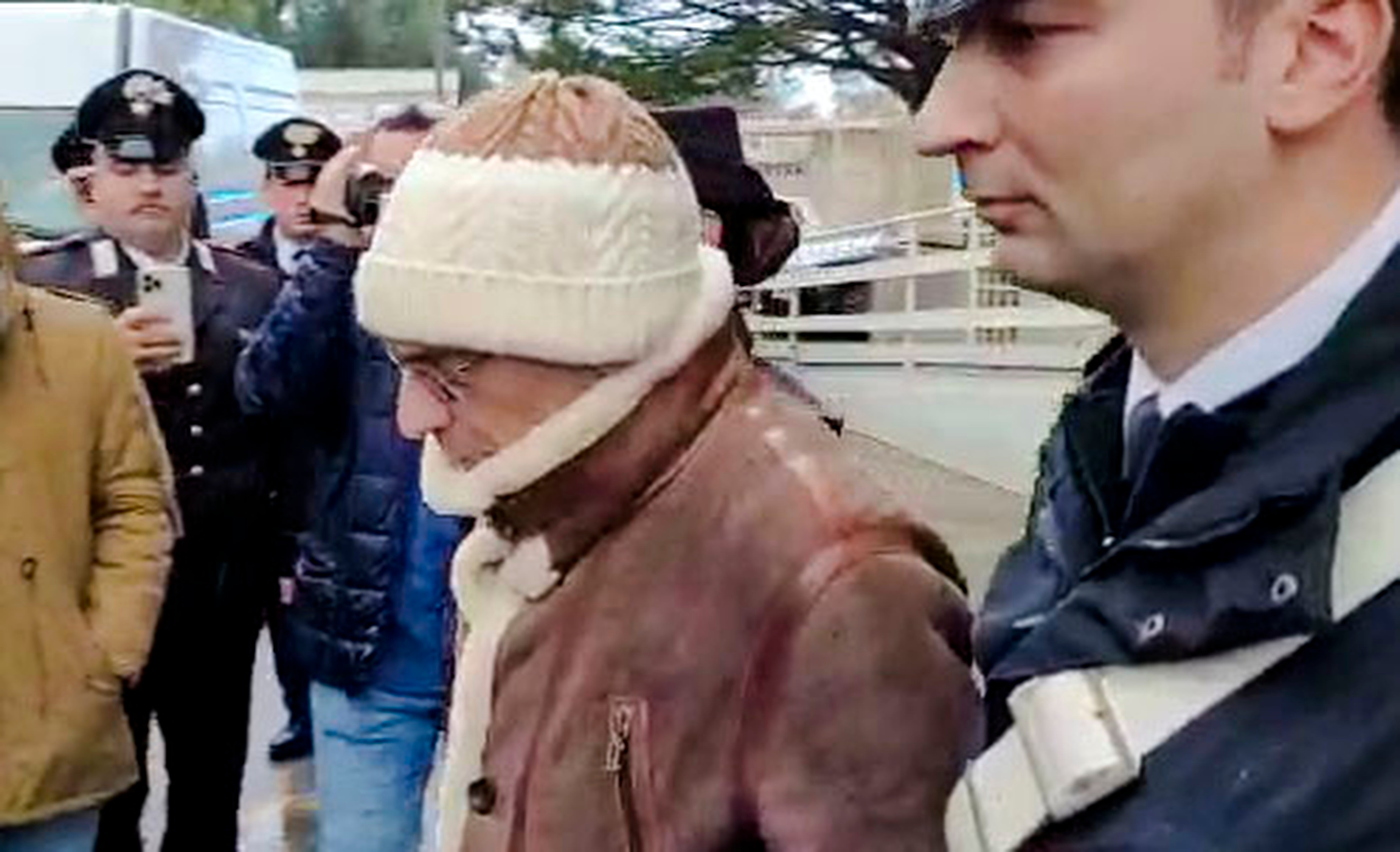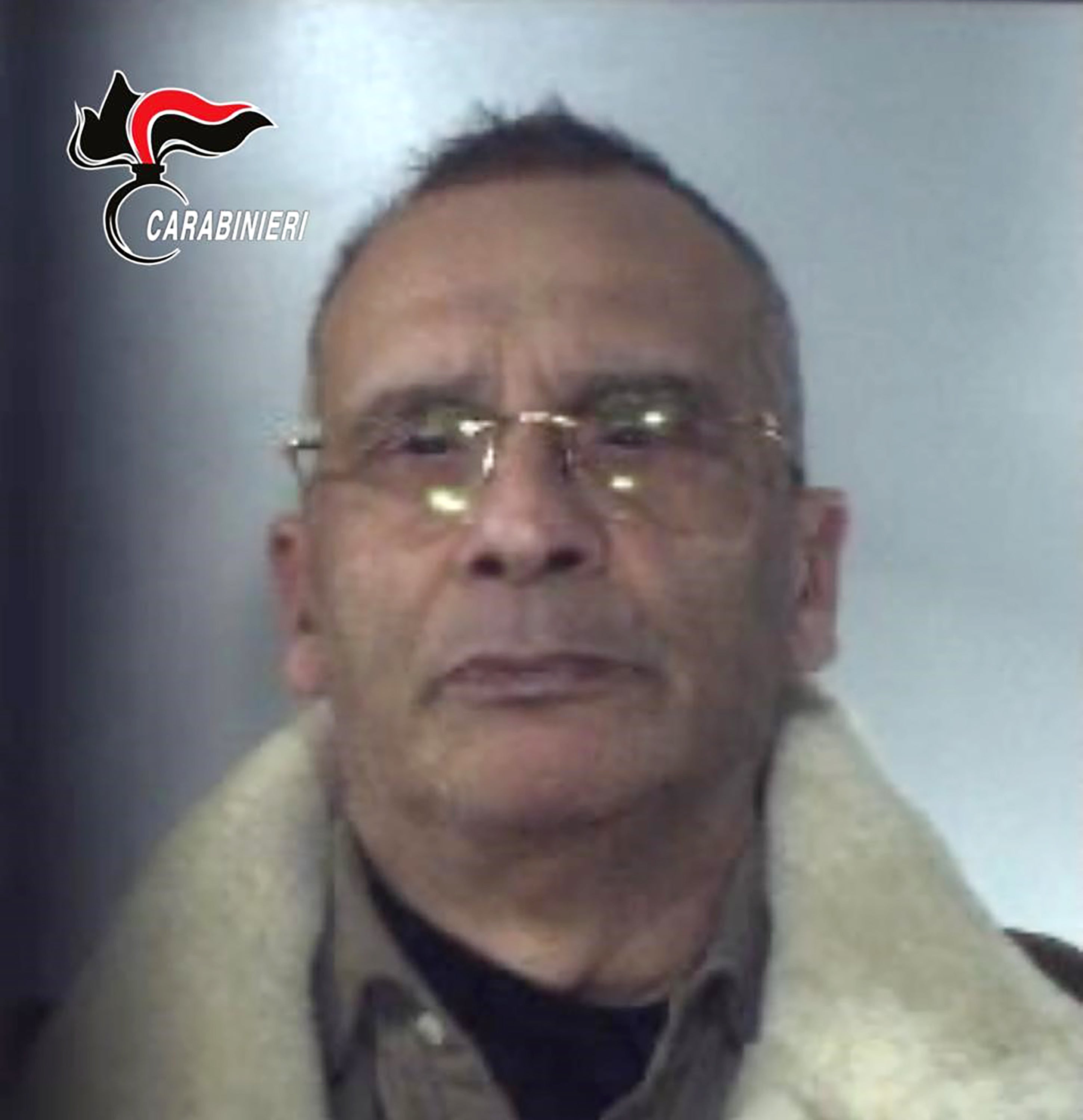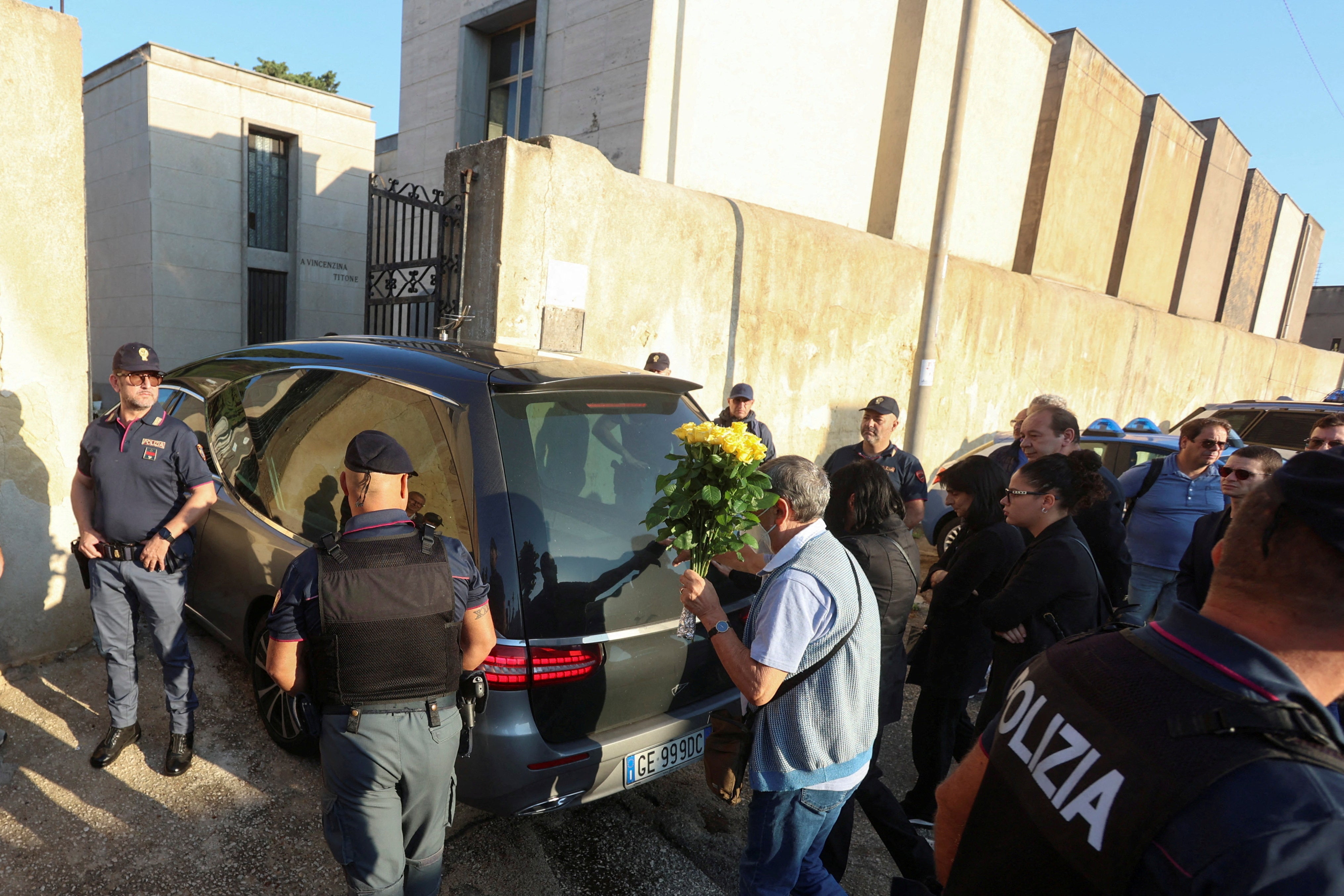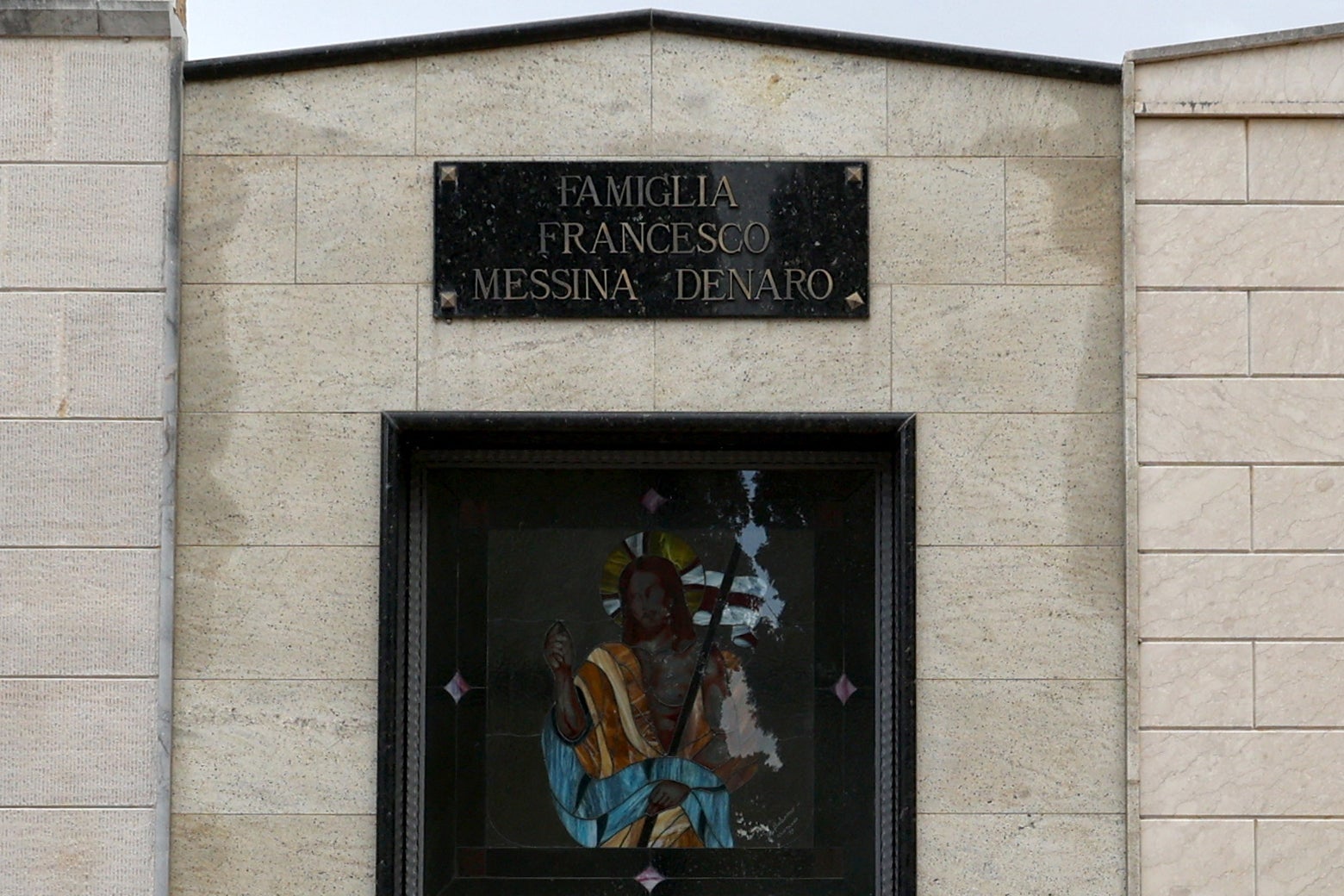The brutal life and graveyard-filling crimes of ‘the last godfather’
Matteo Messina Denaro rose to power on the back of some of the most brutal crimes ever committed by the Sicilian mafia. No future Cosa Nostra leader might ever match his gruesome body count, writes Federico Varese, but the battle to replace him has already begun


Italians think hard about what they want on their graves. Traditionally, the elderly would book a special session with a photographer to have a picture taken for the headstone; they try to look their best for eternity.
Matteo Messina Denaro’s family will face an uphill struggle, as most of the images of him are mugshots or facial composites produced by investigators. He was not a man who longed for the limelight, unlike New York’s ‘Teflon Don’ John Gotti.
At a very private burial on Wednesday, there was no religious service. Seven people walked behind the hearse, one carrying a bunch of yellow flowers; police closed the cemetery entrance to prevent waiting journalists from following three cars carrying relatives.
Among those present were Messina Denaro’s daughter, Lorenza Alagna, who he only met following his capture. The mobster’s two sisters and brother were also there. He takes to the grave many secrets from his mafia past.
Born in 1962 in the small western Sicilian town of Castelvetrano, far from the centre of regional power in Palermo, Matteo was the son of the local mafia family boss. As a boy, he had bad eyesight and wore glasses, and never graduated from high school. He began work as a farmer on the estate of the powerful D’Alì family, but was soon led by his father into a life of crime.

His father, Francesco ‘Ciccio’ Messina Denaro had formed an alliance with Salvatore ‘Toto’ Riina, a capo who was trying to move the mafia from its stronghold of Corleone, south of Palermo.
In the 1980s and early 1990s, Riina launched a war against those who opposed him within the mafia, and then a terrorist campaign against Italian state institutions. Ciccio was a staunch ally, but weak health prevented him from playing an active role in Riina’s grand and murderous plans and so it fell to his son, Matteo, to carry out Riina’s orders.
Thus, Matteo got involved in some of the most egregious and despicable crimes ever committed by the Sicilian mafia, or Cosa Nostra, in its history. In 1992, he killed a rival of Riina and, for good measure, his pregnant girlfriend. He planned the assassination of judge Giovanni Falcone, who was blown up, along with his police escort and his wife, as he headed to Palermo airport.
In 1993, he oversaw the kidnap and murder of a boy whose father was about to become a state witness (the boy was kept in captivity for 779 days, strangled, and his body dissolved in acid). Also in 1993, he masterminded a bombing campaign against historical sites in Milan, Rome and Florence that killed 10 and injured more than a hundred.
By his own estimate, Matteo murdered enough people to “fill an entire graveyard”. When he died on Monday, he was serving seven life sentences.
And yet it is worth debunking some myths that emerged around the figure of Matteo Messino Denaro.
First, he was never the capo di tutti i capi , or the godfather, of the Sicilian mafia, despite him being regularly described that way. The Cosa Nostra does not have such a role, because capi coordinate as equals. He was in charge of Trapani, on the western Sicilian coast, but within the mafia he was second fiddle to the Riina faction – a loyal ally rather than a leader.
Second, he had been a fugitive since 1993, forced to hide in tiny flats, mostly in his own region. His ability to avoid capture, coupled with his heinous crimes, have given him a mythological status in organised crime, yet he had little power beyond Trapani and no significant links outside Sicily.
Finally, Riina’s project failed spectacularly and the Sicilian mafia has been under great pressure ever since. By the time he was finally captured in 2022, Messina Denaro was a man of the past.
But while he was not a globetrotter, and had no connections in the international drugs world, Messina Denaro and his gang were able to exercise a degree of control over communities in western Sicily.
The fact that he was a fugitive for 30 years shows he could muster the support of local officials and politicians. As his body was driven back to his hometown for burial, local youths taunted authorities by paying their respects as he passed, a testament to the grip of the mafia over these lands.

Can we ever win the fight against the Cosa Nostra? Prosecutors and media play up the role of the individual, their arrest (or demise), and the seizure of assets. The deaths of bosses, such as Pablo Escobar in Colombia or Riina and Messina Denaro in Sicily, are seen as turning points.
A refrain often heard in Italy and beyond is “‘follow the money”, as if it were the sure recipe to win the battle against the mafia. Yet, after several hundred arrests, the landmark trials of the 1980s, and the confiscation of billions of euros, the mafia is still active in southern Italy and is even expanding to the north.
The Cosa Nostra – and the mafia of Calabria, the ’Nndrangheta – are part of life. Arrests and forfeiture are crucial in the fight against organised crime, but deep reform of local and national institutions would go a long way towards lasting victories against such organisations.
The Cosa Nostra relies greatly on its ability to help business people secure public contracts in healthcare, local services, road repairs, even school meals. A large part of Sicily’s middle class turns to the mafia to settle disputes over rent, home repairs or business rivalry.
It acts as a substitute for the state in keeping social and economic order; lack of trust in official institutions makes the mafia a viable alternative for many.

It is hard to speculate who will be the next boss of the Castelvetrano mafia family. Yet we know a new boss will emerge, and Italy will continue to be caught in an endless cycle of arrests, deaths, and rebirth.
Italy’s political class continues to ignore the problem, so much so that the issue was absent from the national election campaign in 2022.
The mayor of Castelvetrano, Enzo Alfano, said Messina Denaro had wrecked the reputation of the town, stunting the local economy. “It will take decades more before we can put an end to ... a sometimes rampant culture of illegality, of impunity, that he and his acolytes and others before them cultivated for too long,” he told reporters.
Messina Denaro is buried in the imposing, grand family chapel in Castelvetrano’s Catholic cemetery, a symbol of the power this wretched mafia dynasty has over the dead – and the living.
Federico Varese is professor of sociology at Sciences Po, Paris, a senior research fellow at Nuffield College, Oxford and author of Mafia Life






Join our commenting forum
Join thought-provoking conversations, follow other Independent readers and see their replies
Comments